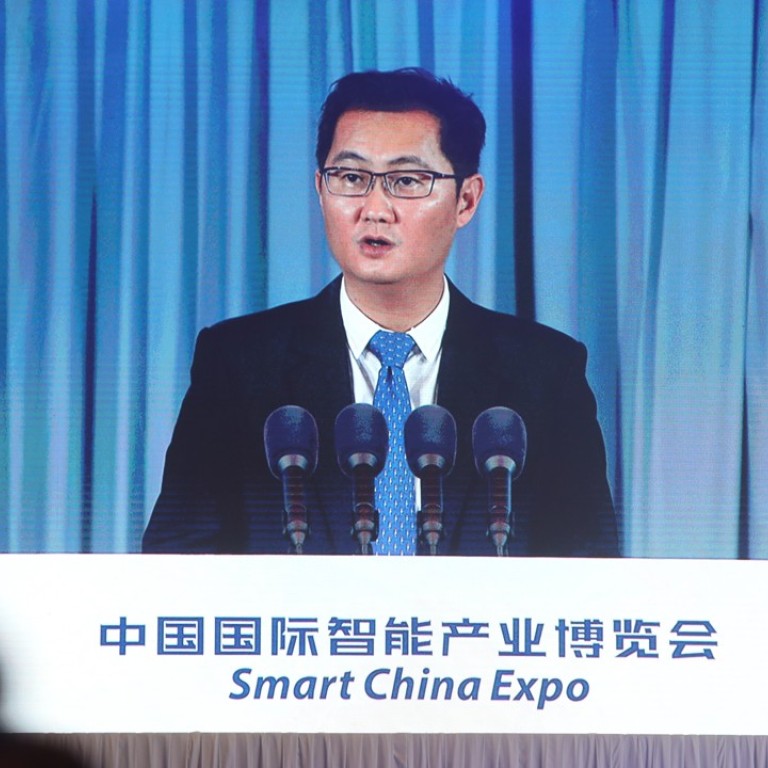
China’s economic shift from speed of growth to quality of growth is ‘unstoppable’, says Tencent’s Ma
Tencent’s chairman also called for greater collaboration among neighbouring cities in China’s Greater Bay Area scheme and the Pan-Pearl River Delta Region
China’s move to prioritise quality of growth over speed in its economic development will be “unstoppable” even amid an escalating trade war between China and the US, according to Tencent chairman and CEO Pony Ma Huateng.
“China’s economy is shifting away from high-speed growth to high-quality development, which will be unstoppable just like rivers that run into the ocean,” Ma said in a speech at the Pan-Pearl River Delta Regional Co-operation and Development Forum in Guangzhou on Wednesday.
While current trade issues are exerting an influence on the technology industry worldwide, Ma reiterated a comment he made last month that China should “play against the wind”. “We need to have a clear understanding of the disparity [in tech capabilities versus the US], but also the confidence in our own development,” Ma said.
The leader of the Shenzhen-based internet giant also called for greater collaboration among neighbouring cities in China’s Greater Bay Area scheme and the Pan-Pearl River Delta Region, which would allow them to enter the global market with innovative products and services.
The “Greater Bay Area” refers to the Chinese government's scheme to link the cities of Hong Kong, Macau, Guangzhou, Shenzhen, Zhuhai, Foshan, Zhongshan, Dongguan, Huizhou, Jiangmen and Zhaoqing into an integrated economic and business hub. The area in south-eastern China encompasses 65 million people and is home to some of the country’s biggest technology companies including Tencent, Huawei Technologies and drone-maker DJI.
This regional economy, currently about three times the size of the San Francisco Bay Area, is expected to surpass the Greater Tokyo and New York areas in 2030 with a GDP of US$4.62 trillion, and become a world-class centre of advanced manufacturing, innovation, international shipping, finance and trade, according to the China Centre for International Economic Exchanges, a government think tank.
In March, Ma proposed an electronic identification scheme for residents in the Greater Bay Area to facilitate mobile payments and as part of a broader drive toward a “digital China”. Hong Kong and Macau residents should be able to link their mainland travel permits to a mobile phone to enable mobile payments, he said at China’s annual parliamentary sessions.
The company is working with the Chinese authorities to develop an “E-card” system, which would allow residents in the region to use WeChat, Tencent’s ubiquitous do-everything app, as a travel permit at border crossings between the mainland and Hong Kong or Macau. The E-card could also be used as identification to set up bank accounts or check into hotels, Tencent said in June.
Technological innovation will be a crucial driver behind the Greater Bay Area and the broader Pan-Pearl River Delta Region, which includes another eight southern provinces, and “digital transformation” can release greater synergies across industries in the region, said Ma on Wednesday.
“Tencent has put forward a goal this year to become the ‘digitisation assistant’ for all industries … helping companies and governments with their digital upgrade,” Ma said in the speech.

